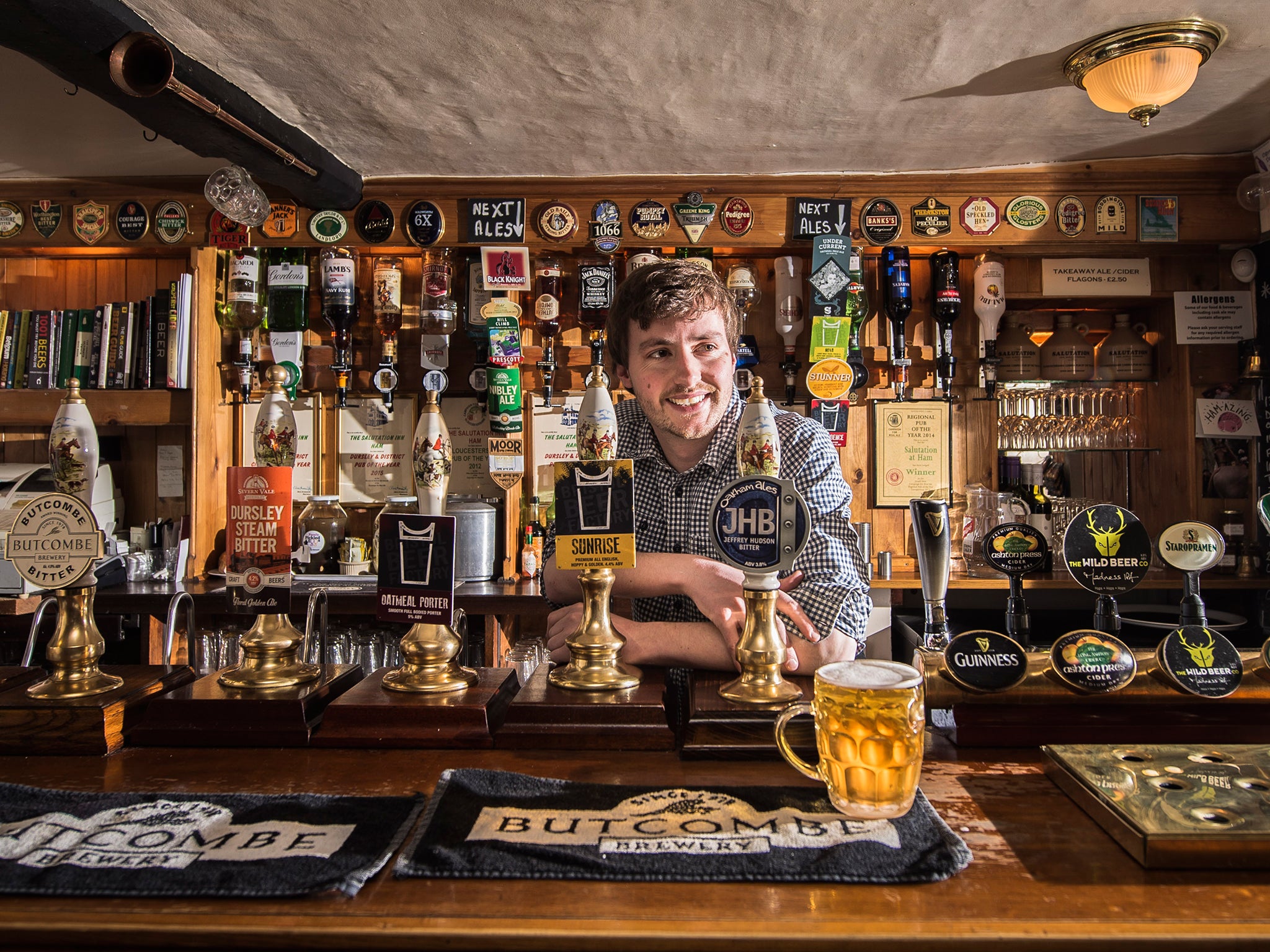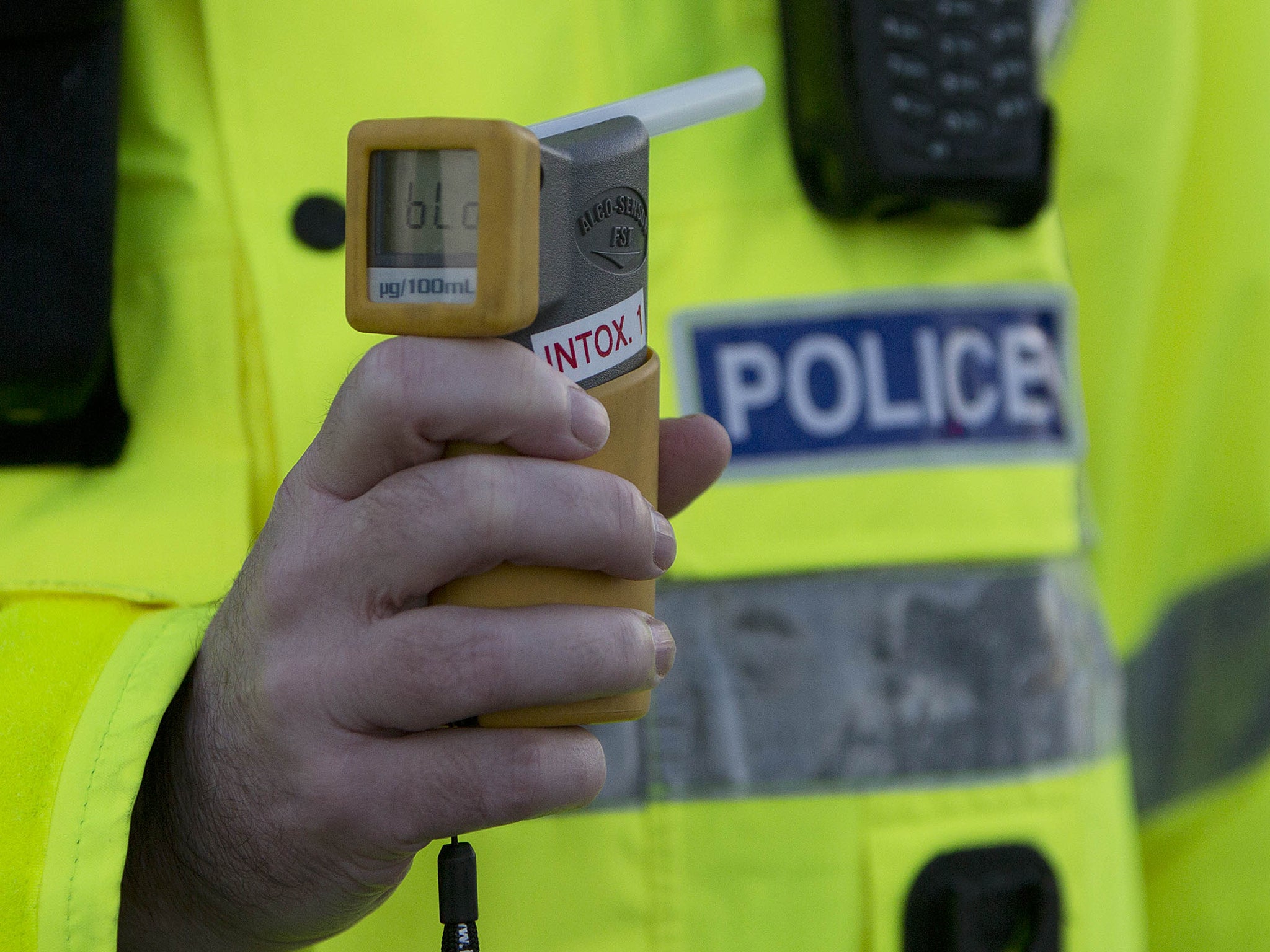David Cameron urged to reject lower drink drive limit by landlord of Britain's best pub
Peter Tiley, who runs The Salutation Inn in Gloucestershire, says he is 'not sure my pub would survive' a lower limit

Your support helps us to tell the story
From reproductive rights to climate change to Big Tech, The Independent is on the ground when the story is developing. Whether it's investigating the financials of Elon Musk's pro-Trump PAC or producing our latest documentary, 'The A Word', which shines a light on the American women fighting for reproductive rights, we know how important it is to parse out the facts from the messaging.
At such a critical moment in US history, we need reporters on the ground. Your donation allows us to keep sending journalists to speak to both sides of the story.
The Independent is trusted by Americans across the entire political spectrum. And unlike many other quality news outlets, we choose not to lock Americans out of our reporting and analysis with paywalls. We believe quality journalism should be available to everyone, paid for by those who can afford it.
Your support makes all the difference.The landlord of Britain’s best pub has written an open letter to David Cameron asking him to reject calls for a lower drink drive limit in England and Wales, claiming that the policy would drive his business into the ground and damage the rural economy.
Peter Tiley, who runs The Salutation Inn in Gloucestershire, said he was “not sure my pub will survive” if the legal limit was reduced to less than one pint of beer, arguing that stricter rules could prove to be the final nail in the coffin for the country’s “already beleaguered rural communities”.
The Government has faced calls from the Police Federation and a number of alcohol and public health charities to reduce the drink drive limit from 80 milligrams of alcohol per 100 millilitres of blood to 50 milligrams. Scotland cut its limit a year ago and Northern Ireland is considering a similar move.

In his letter to the Prime Minister, Mr Tiley said he condemned drink driving but argued that reducing the limit would have a “disproportionately negative” impact on rural parts of the country. In remote communities, a well run local pub could have a “significant” role to play in people's lives, he added.
“The Salutation has become an important part of the local community,” he wrote. “We do not serve food in the evenings because we want to promote conversation, socialising and mingling between different groups of people. In remote, rural settings, people are isolated and rural amenities and meeting places are few and far between. Running a pub in this environment is a difficult way to make a living but I believe it is important.”
Mr Tiley quit his job as a business analyst in London to pursue his ambition of becoming a landlord two years ago. The Salutation in the village of Ham is the current holder of the title National Pub of the Year, which it earned by winning the annual competition organised by the Campaign for Real Ale (CAMRA).
While the reduction in the drink drive limit in Scotland has resulted in a decline in the number of offences recorded by police, pubs reported a 60 per cent fall in takings during the first three months of the new law. In April, the Bank of Scotland warned that the policy was causing a shift in drinking habits which was damaging financial growth.
Mr Tiley’s appeal is being backed by trade body the British Beer and Pub Association, which said the current legal limit was “well understood by the public” and was “clearly respected” by drinkers. “I would share Pete’s concerns about any such change, and there is no doubt that the change in Scotland has had a significant impact on pubs,” said chief executive Brigid Simmonds. “To maintain the very safe roads we already have, we need to continue the focus on education, awareness campaigns, and tough enforcement.”
Tim Page, CAMRA's chief executive, said the group “strongly recommends that people do not drink and drive” but urged the Government to “consider the impact” that lowering the limit has had on the licensed trade in Scotland before applying it elsewhere.
“With the change in Scotland having affected the business of hundreds of rural pubs we'd expect the Government to present robust evidence demonstrating the benefits of any proposed change in other parts of the UK – where adoption of the lower limit is likely to affect the commercial viability of thousands of pubs,” he added.
A Department for Transport spokesperson said: “The drink driving limit for England and Wales strikes an important balance between safety and personal freedom. By having our limit, we are not criminalising those who drink a small amount a long time before driving, but our advice remains unchanged: don’t take the risk by driving after you have had a drink.”
The letter
Dear Prime Minister,
I am writing to oppose calls for the drink drive limit in England and Wales to be lowered to fall in line with laws passed in Scotland last year. I believe that reducing the limit to less than one pint of beer would have a disproportionately negative impact on our rural pubs and communities.
In Scotland in December 2014, the legal drink drive limit was lowered from 80mg of alcohol per 100ml of blood to 50mg, making it illegal to drive after consuming one pint of beer. The impact on the licensed trade in Scotland has been “catastrophic”. A survey by the Scottish Licensed Trade Association showed 55 per cent of outlets saw a decline in year-on-year sales, with 39 per cent of rural retailers recording a decline of 10 per cent or more.
I am the landlord of a community-focused, real ale pub in rural Gloucestershire called The Salutation Inn. In 2015 we were presented with the Campaign for Real Ale’s National Pub of the Year award. If the drink driving limit is lowered in England, I am not sure my pub will survive.
The Salutation has become an important part of the local community. We do not serve food in the evenings because we want to promote conversation, socialising and mingling between different groups of people. In remote, rural settings, people are isolated and rural amenities and meeting places are few and far between. Running a pub in this environment is a difficult way to make a living but I believe it is important.
In the pub I have seen relationships build and strengthen and a whole community grow. I see people helping each other out on a daily basis. Younger clientele offering a hand to fix broken laptops, customers donating surplus fruit and veg to those without the gardens to grow them, people visiting each other in hospital or calling round to check on the elderly or infirm living alone if they are absent from the pub.
People have made friendships through the pub and as a result everyone who frequents it has someone there to look out for them. The pub is also a fertile sales ground for local tradesmen, frequently picking up work through word-of-mouth recommendations. It is difficult to measure the impact that having a well-run community pub can have on society but I believe it is significant.
Without a pub for people in rural areas to socialise in, we might expect to see an increase in people drinking cheap alcohol at home, without the watchful eye of a licenced publican to ensure alcohol is consumed responsibly.
Of course I condemn drink driving and am fully supportive of campaigns by the police and related public safety bodies to eradicate it, however I believe that the current drink drive limit is appropriate and measures taken to enforce it, proportional. Drink-drive related casualties in the United Kingdom have declined by 59 per cent since 2002 and road deaths have declined 7 per cent year-on-year since 2001.
Although the current legal limit of 80mg per 100ml is the joint highest in the EU, the United Kingdom has some of the safest roads and some of the lowest road deaths per capita in Europe. This can be attributed to tough penalties, a sensible limit, awareness campaigns and strong enforcement activities.
I hope that before the Government contemplates following the likes of Scotland, as the Police Federation have already urged them to do, it will consider the impact such legislation will have on our already beleaguered rural communities and disappearing public houses.
Yours sincerely,
Peter Tiley
Landlord of the Salutation Inn
Join our commenting forum
Join thought-provoking conversations, follow other Independent readers and see their replies
Comments